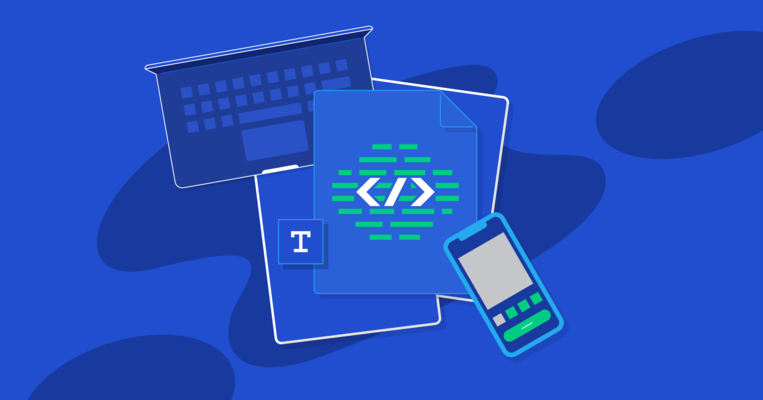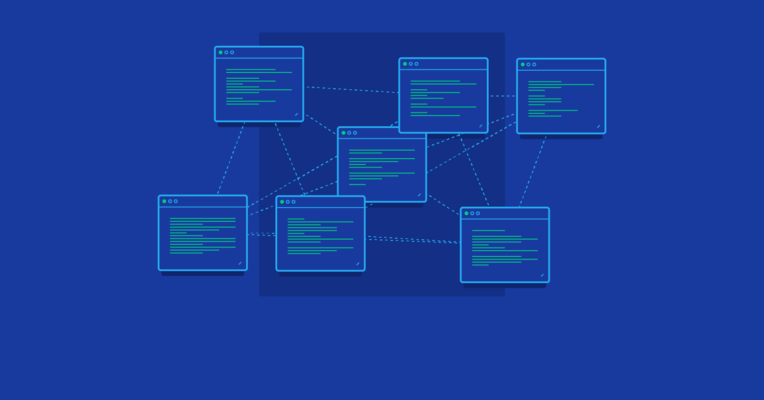The Demand for Outsourced Developers Continues to Rise
Outsourced development has evolved from a cost-cutting strategy into a core business function embraced by startups and global enterprises alike. As digital transformation accelerates across every sector—including fintech, healthcare, and e-commerce—companies are turning to outsourced development teams to access specialized skills, reduce time to market, and scale quickly without long-term infrastructure commitments.
The global IT outsourcing market is projected to exceed $661 billion in 2025, reflecting a compound annual growth rate of 8.2% between 2024 and 2034. This surge underscores the growing trust in remote software development teams and the increasing demand for agile talent pools that can adapt to evolving project needs and technologies. Outsourcing is no longer just about saving money—it’s about driving innovation and delivering better digital products.
As a result, hiring top-tier outsourced professionals has become increasingly competitive. Companies must prioritize quality, communication, and technical specialization over just affordability. Outsourced specialists are integral to modern tech stacks, whether developing custom software, a complex web platform, mobile apps, or a SaaS product.
This guide will help founders, engineering managers, and hiring teams identify, evaluate, and onboard the best outsourced development talent to meet their business objectives.
What Attributes Distinguish Quality Outsourced Developers From Others?
The most talented outsourced developers bring more than just raw coding skills. They combine technical proficiency with autonomy, communication savvy, and a deep understanding of business goals. These professionals must be capable of operating remotely, often across time zones and cultures, while maintaining high output and strong collaboration standards.
Top-tier outsourced engineers excel at self-management. They meet deadlines without micromanagement and proactively flag roadblocks. Clear and consistent communication is another hallmark; they articulate challenges, provide estimates, and offer feedback in a timely and professional manner. Whether working solo or within a distributed team, their alignment with project goals remains critical to successful execution.
On a technical front, a strong outsourced developer should be fluent in your project’s specific stack. For web development, this could include JavaScript (React, Angular, Node.js), Python (Django, Flask), or PHP (Laravel, Symfony). Mobile developers should know Swift or Kotlin, while back-end-heavy systems may require Java, C#, or Go.
Experience with collaborative tools such as Jira, Slack, GitHub, and CI/CD platforms is a must, especially when working asynchronously. Developers who have previously worked with international clients often bring refined workflows, cross-cultural communication skills, and a proactive mindset.
Lastly, cultural compatibility and time zone overlap—while often overlooked—can make or break outsourcing relationships. The best developers understand the expectations of modern Agile development processes and can seamlessly integrate into your existing workflows.
Complementary Technology Skills for Outsourced Developers
In the world of outsourcing, technical breadth and adaptability are key. The following complementary skills can significantly boost the effectiveness of an outsourced software developer:
Full-stack Development: Programmers proficient in both front-end (HTML, CSS, React, Vue.js) and back-end (Node.js, Django, Ruby on Rails) technologies enable leaner teams by managing entire feature sets independently, from early design stages through app development and deployment.
DevOps Knowledge: Familiarity with containerization (Docker), cloud platforms (AWS, Azure, GCP), and CI/CD pipelines empowers outsourced developers to deploy and maintain applications with minimal friction.
Database Design and Optimization: Outsourced developers often work with remote datasets. Experience with relational databases (MySQL, PostgreSQL) and NoSQL systems (MongoDB, Firebase) helps ensure scalable and performant solutions.
Agile Methodologies: Developers who have worked in Agile settings, including teams that follow the Scrum framework, can estimate tasks, collaborate across sprints, and deliver incremental value, even when remote, ensuring smooth collaboration with in-house team members.
Automated Testing: Experience with unit testing, integration testing, and tools or frameworks like Selenium, Jest, or Mocha helps improve code reliability and reduces time spent on manual QA.
Security Best Practices: A solid grasp of security principles—such as OWASP guidelines, secure API design, and data encryption—is essential, especially when building consumer-facing apps or handling sensitive data.
API Development and Integration: Skilled outsourced developers can design robust RESTful or GraphQL APIs and integrate third-party services like Stripe, Twilio, or Firebase while securely handling authentication.
Communication and Documentation: Clear documentation habits are especially critical in outsourced teams. Engineers who maintain clean README files, use standardized commenting, and document architectural decisions reduce onboarding time and minimize technical debt.
How Can You Identify the Ideal Outsourced Developer for Your Project?
Hiring outsourced developers requires understanding your specific project needs and finding professionals who can deliver value with minimal oversight. The ideal outsourced developer is a reliable partner who can work autonomously and adapt quickly to your team’s culture and workflows.
Align Role With Project Scope and Goals
Start by clearly defining the scope and goals of your project, along with specific project requirements that will guide candidate selection. Whether you’re developing a prototype, scaling an existing product, or addressing a specific backlog of features, each scenario demands a different type of developer. Minimal viable products (MVPs) often benefit from full-stack generalists with startup experience who can move quickly and handle a broad range of responsibilities. In contrast, complex systems may require specialists with cloud infrastructure or cybersecurity expertise.
Once you know what you need, assess candidates for technical fit and professional maturity. Look beyond titles and years of experience. Focus instead on their contributions to similar projects, especially remote or client-facing roles. Developers who have worked across time zones, delivered code with minimal supervision, and communicated effectively in asynchronous environments will be better equipped to succeed in outsourced settings. If your team depends on real-time collaboration, factor in time zone overlap and working-hour flexibility.
Assess Experience and Communication Styles
It’s important to distinguish between junior and senior outsourced talent. Junior developers can be cost-effective for narrowly scoped tasks but often require detailed specs and frequent check-ins. Senior developers, on the other hand, bring architectural thinking, innovation, and the ability to manage complex deliverables independently. Experienced freelancers or agency partners are usually worth the higher rate for time-sensitive or business-critical projects.
Regardless of your particular use case, never underestimate the importance of communication. Strong outsourced developers provide clear updates and aren’t afraid to ask questions or surface blockers early. Their ability to work across tools like Slack, Notion, GitHub, and Zoom—and their comfort with both async and real-time collaboration—can significantly impact your team’s productivity. Ultimately, the ideal candidate will not only write great code but also contribute meaningfully to your project’s rhythm, structure, and momentum.
How to Write an Outsourced Developer Job Description
Crafting a compelling job description is essential to attracting high-quality outsourced candidates during the hiring process. Start with a clear title, such as “Remote Full-stack Developer (Outsourced)” or “Freelance Back-end Developer—Node.js & AWS.”
In the role overview, include key details such as the the scope of the project, timeline, team size, and expected time commitment (full-time, part-time, or hourly). Specify whether this is a one-off contract, ongoing project-based work, or a long-term retainer. This information helps candidates assess both fit and availability.
Next, list the must-have technical requirements, such as specific programming languages, frameworks, and tools you use in your workflow. Also, highlight nice-to-have skills like DevOps, third-party API integration, or familiarity with automated testing. Set expectations around communication, such as daily standups, weekly updates, preferred time zones, or overlap requirements. Also, include your team’s tools—like Slack, Zoom, Trello, or GitLab—so candidates know how you’ll collaborate.
Finally, mention any benefits or incentives, such as flexible hours, long-term engagement potential, or the opportunity to work on meaningful projects. Conclude with a clear call to action: Explain how to apply, what to include (e.g., portfolio, GitHub link, cover letter), and what the interview process looks like.
What Are the Most Important Outsourced Developer Interview Questions?
Vetting outsourced programmers requires a balanced approach. You’re not just assessing technical skills—you’re evaluating communication, reliability, and how well they can work within your systems. The questions below are designed to uncover both hard and soft skills that are essential for successful remote collaboration.
Have you worked in outsourced or remote roles before?
This question is foundational for understanding a candidate’s experience with remote collaboration. The best candidates will not only confirm that they’ve worked remotely but will go further, describing how they’ve managed client relationships, delivered results across various time zones, and remained productive without constant oversight. Look for specific examples of tools they’ve used (like Trello for task tracking, Slack for quick team communication, or Zoom for meetings), how they ensured alignment with clients, and what they’ve learned from past remote engagements.
How do you manage your time and prioritize tasks across different clients or projects?
Outsourced developers often juggle multiple projects at once, so their ability to self-manage is critical. A well-qualified candidate will have a clearly defined process—perhaps a daily task board, weekly planning ritual, or rely on tools like Notion, ClickUp, or Google Calendar to keep everything in sync. Strong responses will show how they break down large projects into milestones and adjust priorities based on shifting client needs or urgent bugs. You want someone who treats your project with ownership, even if it’s one of several on their plate.
Can you walk me through a remote project you built from start to finish?
This question helps reveal both technical depth and process maturity. Look for specialists who can clearly explain the entire project lifecycle—how they gathered initial requirements, why they chose a specific tech stack, how they structured their codebase, and what testing, deployment, and feedback loops they used. Ideally, they’ll also reflect on challenges they faced, how they resolved them, and what they might do differently next time. This demonstrates not only experience but also self-awareness and a commitment to continuous improvement.
How do you handle unclear specifications or changing requirements?
Working remotely often means developers won’t have immediate access to clarification, so adaptability is key. The best candidates will explain how they seek clarity upfront by asking detailed questions, identifying assumptions, and documenting goals. When changes happen mid-sprint, experienced developers should be able to talk about managing scope creep, perhaps by using tools like Jira to reprioritize tasks, updating project timelines, or involving stakeholders in deciding trade-offs. A developer who embraces ambiguity and adapts quickly will be an asset to any outsourced project.
What do you do when you encounter a blocker or delay?
You want developers who are communicative and solutions-oriented—not silent—when something goes wrong. A strong answer will highlight their instinct to alert clients early, present alternative approaches, and escalate only when needed. Look for those who use version control tools like GitHub to isolate issues, run tests to diagnose problems, and actively seek feedback when something’s unclear. Proactivity and transparency are far more valuable than simply being a brilliant coder.
This question helps you gauge how easily the candidate will fit into your current workflows. Developers with remote experience should be comfortable using modern platforms like Slack for messaging, Zoom or Google Meet for calls, Jira or Asana for task tracking, Git for version control, and tools like Figma or Loom for visual or async collaboration. Their response should show not only familiarity but also a preference for clear and frequent communication, as well as structured workflows that keep distributed teams aligned.
How do you ensure code quality when working independently?
Since outsourced developers often work without day-to-day supervision, it’s vital they follow best practices to maintain high standards. Ideal candidates will talk about writing clean, modular code, using automated testing tools (like Jest or Cypress), documenting their logic, and conducting regular self-reviews. If they’ve worked in teams before, they might also mention peer code reviews and using CI/CD pipelines to maintain integrity. Their answer should reflect a mindset of accountability and professionalism, even when no one is directly watching.
By asking these targeted questions, you’ll gain a much clearer picture of whether an engineer has the technical depth, remote experience, and communication skills to thrive in an outsourced role. These aren’t just programmers—they’re remote collaborators who need to be self-driven, organized, and committed to your project’s success.
Why Do Companies Hire Outsourced Developers?
Companies hire developers through outsourcing to boost efficiency, reduce overhead, and access specialized skill sets without the long-term commitment of full-time hires. Outsourcing allows businesses to build and scale faster while maintaining budget flexibility—an especially valuable advantage for startups and growing teams managing limited resources and looking for cost-effective solutions. By tapping into a global network of technical talent, organizations can find software engineers with the exact experience they need, whether that’s in AI, e-commerce, mobile development, or cloud infrastructure.
Outsourced developers are more than just a cost-saving measure: They are strategic partners who enable 24/7 development cycles, faster time-to-market, and operational agility. They allow internal teams to stay focused on core business objectives like product strategy, customer engagement, and growth while external experts take care of execution and iteration. Whether scaling for a product launch or pivoting mid-development, outsourced talent allows companies to build and innovate without being constrained by geography or staffing limitations.



























